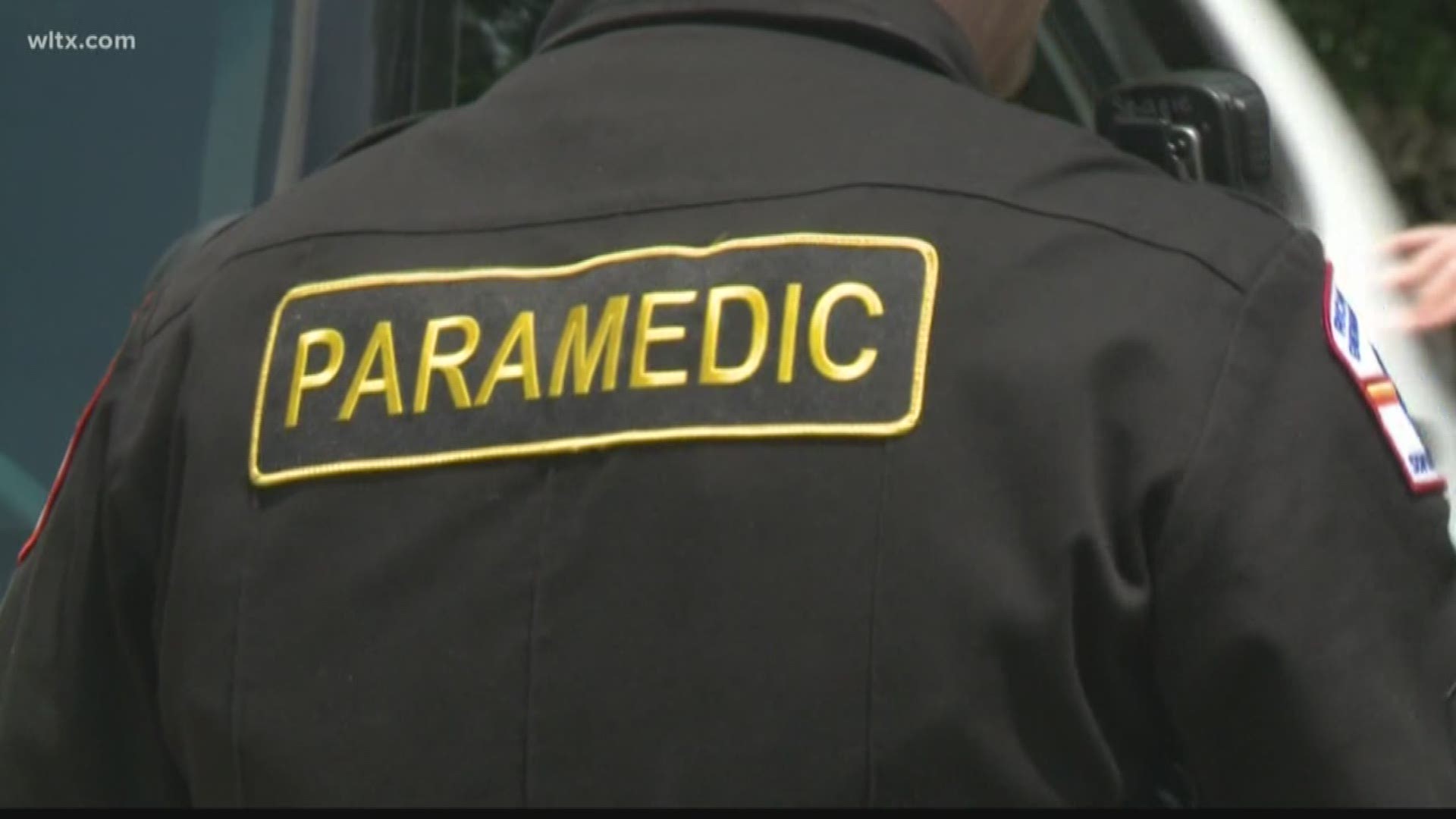COLUMBIA, S.C. — Statewide research shows South Carolina is struggling to attract and retain emergency medical service (EMS) workers.
Officials from the South Carolina EMS Association and the Office of Healthcare Workforce said some training programs are severely under-enrolled.
In addition, they said those that do graduate are only staying in the field for about eight years. They said several factors may play into that such as low pay, long hours and poor working conditions.
At a local level, Lexington county is currently facing an issue with hiring paramedics.
"It's not today, but it's not very far off at all," Lexington EMS Chief Brian Hood said.
That is the message emergency management services around the state are saying as they try to recruit more emergency medical technicians and paramedics to combat a possible future shortage.
"We would classify the current culture of EMS as a hardship," South Carolina EMS Association President Henry Lewis said. "Certainly EMS is a calling as much as it is a profession like law enforcement or fire. It is not a job just anybody can do."
Lewis said the state is OK for right now, but he does have concerns on their current recruitment strategies.
"We are not really getting the messaging out there and were not reaching some of the young folk and what we actually do and what a career in EMS could mean for them," Lewis said.
Hood said they are experiencing a paramedic shortage right now, but in order to be a paramedic you have to be an EMT first. An EMT is an entry level position, but is causing a domino effect within the industry.
"It is very, very difficult to hire paramedics in the industry certainly not just here in Lexington," Hood said. "Just as an example, the State of South Carolina produced 113 new paramedics, that same year, in the course of 12 months, the state lost 200 paramedics."
Hood said the industry as a whole struggles with recruitment and compensation, but he hopes these ideas will turn it around.
"We need to be exploring grant programs at the state level to augment the students ability to go to class and again have some of that tuition covered by the state," Hood said.
Both Hood and Lewis do not want to concern citizens, but do want to be proactive in bringing awareness to their field.
"If we don't take proactive approaches to look at our culture to look at how we recruit young people into this profession, ten years down the road we may have a different story," Lewis said.
Lewis said in the state we have 15 training programs, 9 technical colleges and 6 regular training centers.

